Diana Damrau - Mozart - Opera & Concert Arias (2008)
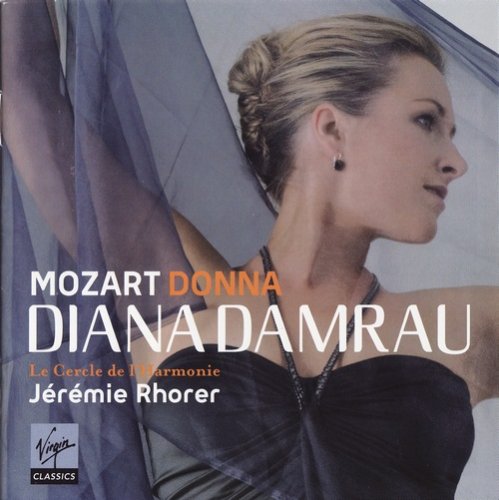
Artist: Diana Damrau
Title: Mozart - Opera & Concert Arias
Year Of Release: 2008
Label: Virgin Classics
Genre: Classical, Opera, Vocal
Quality: FLAC (image+.cue,log,scans)
Total Time: 73:21
Total Size: 312 Mb
WebSite: Album Preview
Tracklist: Title: Mozart - Opera & Concert Arias
Year Of Release: 2008
Label: Virgin Classics
Genre: Classical, Opera, Vocal
Quality: FLAC (image+.cue,log,scans)
Total Time: 73:21
Total Size: 312 Mb
WebSite: Album Preview
01. Mitridate, re di Ponto: Al destin che la minaccia (Aspasia) - 06:05
02. Die Zauberflöte: Ach, ich fuhl's (Pamina) - 03:59
Le Nozze di Figaro:
03. E Susanna non vien (Contessa) - 01:29
04. Dove sono (Contessa) - 04:15
05. Giunse alfin il momento (Susanna) - 01:20
06. Deh, vieni, non tardar (Susanna) - 03:01
07. La finta semplice - Senti l'eco, ove t'aggiri (Rosina) - 06:47
Die Entführung aus dem Serail:
08. Durch Zärtlichkeit und Schmeicheln (Blonde) - 04:00
09. Martern aller Arten (Konstanze) - 08:44
10. Vorrei spiegarvi, oh Dio - K. 418 - 06:07
Don Giovanni:
11. Crudele ? Ah no, mio bene (Donna Anna) - 01:34
12. Non mi dir (Donna Anna) - 04:33
13. La Clemenza di Tito: S'altro che lagrime (Servilia) - 01:47
Don Giovanni:
14. In quali eccessi (Donna Elvira) - 01:59
15. Mi tradi (Donna Elvira) - 03:39
La Clemenza di Tito:
16. Ecco il punto (Vitellia) - 02:18
17. Non piu di fiori (Vitellia) - 06:18
18. No, che non sei capace - K.419 - 04:07
Performers:
Diana Damrau - soprano
Le Cercle de L'Harmonie
Conductor Jeremie Rhorer
“A strong and pleasing voice, in both high and low notes – a combination which one rarely encounters,” ran one contemporary report of Catarina Cavalieri, the soprano who created Konstanze in Die Entführung. Though I’d put it rather less laconically, that verdict holds equally good for Diana Damrau, whose new Mozart recital includes two arias composed for Cavalieri, “Martern aller Arten” and Elvira’s “Mi tradì” (added for the 1788 Viennese revival of Don Giovanni). The glamorous German soprano, now in her mid-thirties, made her international reputation as a sensational Queen of the Night and Zerbinetta. Like Lucia Popp at a similar age, she has now abandoned the Queen’s trapeze act for the more amenable tessitura of her daughter Pamina, singing “Ach, ich fühl’s” as an intensely private, almost dazed, expression of grief. Yet she still sails effortlessly into the ionosphere, whether as Konstanze, Blonde or, most spectacularly of all, in two “insertion” arias (K418 and 419) Mozart composed for his sister-in-law Aloysia Lange to sing in Anfossi’s Il curioso discreto. Damrau’s pearly, aspirate-free coloratura is immediately on display in Aspasia’s opening aria from Mitridate. Her fiery, imperious yet never hard-toned “Martern aller Arten” – sung here with Mozart’s cuts opened out – would silence any Pasha. Surely La Cavalieri, of the “flexible throat” (Mozart), never sang or characterised this better. In the same opera, Damrau alternately cajoles and taunts Osmin in a delightful “Durch Zärtlichkeit” – the feisty Blonde to the life.
Hardly less successful are the double acts from Figaro, La clemenza di Tito and Don Giovanni, each a distinct, individual portrayal. Perhaps Countess Almaviva (which Damrau has yet to sing on stage) is the one role here that ideally calls for a warmer, richer voice. That said, few singers have matched her surge of joyous resolve – or the imagination of her phrasing – in the fast section of “Dove sono”. Moving from mistress to maid, Damrau sings an enchanting, sensuously caressed “Deh, vieni”. In La clemenza di Tito she has the tonal depth, as well as the grace of line, for Vitellia’s aria of remorse, and brings an anxious urgency rather than mere charm to Servilia’s minuet song (she is, after all, pleading for her brother’s life). The notoriously taxing “Mi tradì” is sung with technical panache and acute delineation of Elvira’s fluctuating emotions; and it is good to hear the coloratura in Anna’s “Non mi dir”, so often a trial, despatched with such elegance and delicacy. Here and elsewhere Jérémie Rhorer draws tangy, rhythmically lively playing from his period band. “Taste”, “fire”, “flexibility”, “sweetness”, “grace of execution” – these were the qualities especially prized in singers of Mozart’s day. On this showing Damrau, like Lucia Popp before her, has them all.
Hardly less successful are the double acts from Figaro, La clemenza di Tito and Don Giovanni, each a distinct, individual portrayal. Perhaps Countess Almaviva (which Damrau has yet to sing on stage) is the one role here that ideally calls for a warmer, richer voice. That said, few singers have matched her surge of joyous resolve – or the imagination of her phrasing – in the fast section of “Dove sono”. Moving from mistress to maid, Damrau sings an enchanting, sensuously caressed “Deh, vieni”. In La clemenza di Tito she has the tonal depth, as well as the grace of line, for Vitellia’s aria of remorse, and brings an anxious urgency rather than mere charm to Servilia’s minuet song (she is, after all, pleading for her brother’s life). The notoriously taxing “Mi tradì” is sung with technical panache and acute delineation of Elvira’s fluctuating emotions; and it is good to hear the coloratura in Anna’s “Non mi dir”, so often a trial, despatched with such elegance and delicacy. Here and elsewhere Jérémie Rhorer draws tangy, rhythmically lively playing from his period band. “Taste”, “fire”, “flexibility”, “sweetness”, “grace of execution” – these were the qualities especially prized in singers of Mozart’s day. On this showing Damrau, like Lucia Popp before her, has them all.
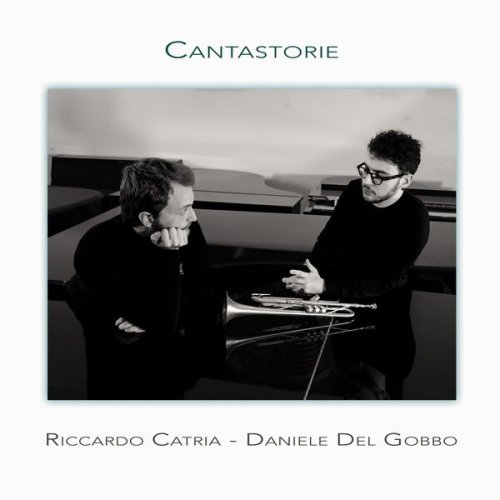
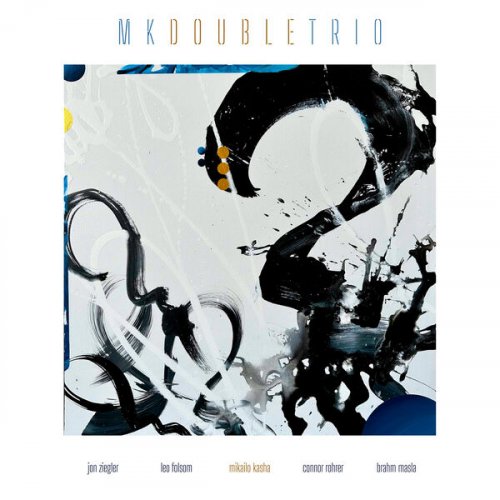

![Chet Baker Quartet - Chet Baker in Paris Vol. 3 (1955-56) [2024 SACD] Chet Baker Quartet - Chet Baker in Paris Vol. 3 (1955-56) [2024 SACD]](https://www.dibpic.com/uploads/posts/2026-01/1769756405_ucgu9076.jpg)

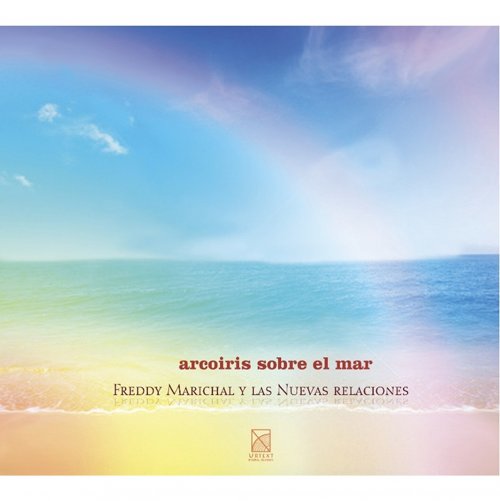

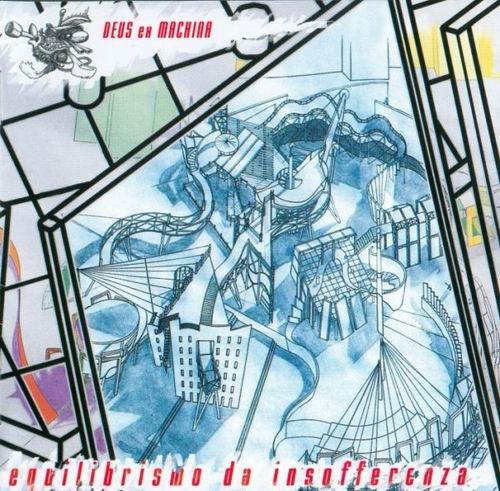
![Mari Boine - Goaskinviellja - Eagle Brother (Remastered 2025) (2026) [Hi-Res] Mari Boine - Goaskinviellja - Eagle Brother (Remastered 2025) (2026) [Hi-Res]](https://img.israbox.com/img/2026-01/31/so1zgdk2eva394qd3qtlyxfd2.jpg)